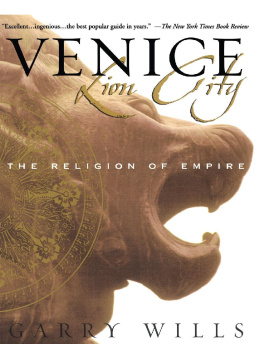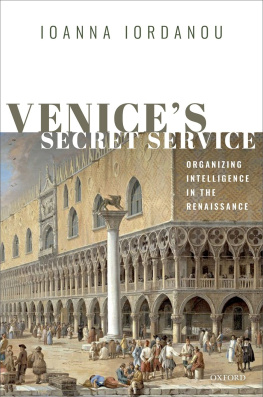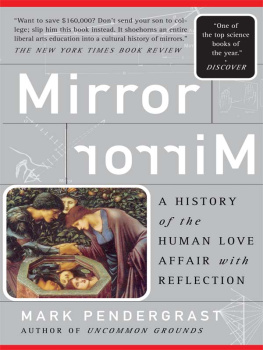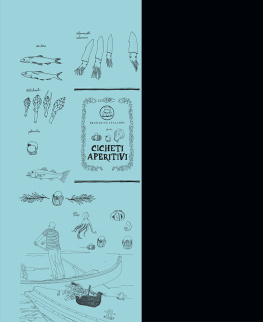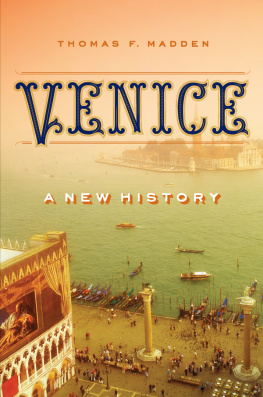Martin Seay
The Mirror Thief
For
Kathleen Rooney
and
in memory of
Joe F. Boydstun
Did you ever happen to see a city resembling this one? Kublai asked Marco Polo, extending his beringed hand from beneath the silken canopy of the imperial barge, to point to the bridges arching over the canals, the princely palaces whose marble doorsteps were immersed in the water, the bustle of light craft zigzagging, driven by long oars, the boats unloading baskets of vegetables at the market squares, the balconies, platforms, domes, campaniles, island gardens glowing green in the lagoons grayness.
No, sire, Marco answered, I should never have imagined a city like this could exist.
ITALO CALVINO, Invisible Cities
Listen. This is what you see:
A tall casement window. Floorlength drapes of green brocade, parted along the curtainrod. Gray halflight seeping through. Tasseled valance, sheer lace beneath. The wind shakes the glass, and the curtains sway into the room.
Chairs. Desk. Chest of drawers. Wardrobe they never have closets, these old places. Whitewashed walls. Polished parquet floor, too slick for socks. Nightstands, frilly lamps. White telephone. Tacky glass chandelier: aqua petals, frosted forty-watt bulbs. Hotel shit. The type of shit they always put in hotels. Doesnt matter where.
The bed, of course. Queensize. Canopied. Fancy pillows stacked in the corner, like somebodys weddingcake. Linen sheets. Every blanket the innkeeper can spare. Coperte, per favore! Pi coperte! Still, it never gets warm.
Coperta. Add it up. Two hundred ninety-nine: to overthrow. Or twenty: to breathe, to hide, to sweep away dirt. An illness. A sickness at heart. In Hebrew, : thats a hundred and twenty-four, which can mean a torch, or a lamp. A forsaking. A passing-by. A delay, maybe. How long?
Clothes laid out on the dresser: gray slacks, black socks, blue oxford shirt. Hat. Wallet. Bunch of weird coins. On the floor, your new white sneakers and your suitcase. Propped in the corner, your ironheaded cane.
Another minute and youll sit up. Stand. Go to the window. Steady yourself for the long look across the rooftops: the sliver of the Calle dei Botteri on one side, the Calle dei Morti on the other, emptying the quiet campo. Youll stand there and youll watch. Like you always do.
In this city, nobodys supposed to know you. Though youve walked its streets in your head a million times, youre a stranger here, a tourist. Thats a big part of why you came. But somebody down there knows you, and hes headed your way: a bug crawling up your pantleg, making it tough to concentrate. Before he shows up at your door you want to spot him, to sieve his shape from the sparse Lenten crowds. Buzzcut head. Cadenced step. Muscled frame. Easy enough to notice. Just go to the window and wait.
But not right now. Maybe in a while. Not feeling too good now. No pain, just a funny heavy feeling. The layered blankets rise and fall.
On the wall above the headboard upsidedown at this angle, cant quite see theres a framed print. Muddy watercolor. Rickety boats. Smeared sky. San Giorgio Maggiore in the background. A view from the Riva degli Schiavoni, probably. J.M.W. TURNER: black letters in the white margin. Some guy who didnt know when to quit. Looks like he tried to erase it with a wet toothbrush.
Turner. Thats five hundred and five. Drinking vessels. To declare perverse.
Another gust: the sashes rattle. Three days of cold, late in the season. At low tide the canals are bled out, the gondola-keels stuck in the mud. The whole city kashered. Yesterday at noon you could just about walk to Murano from the Fondamenta Nuove. Imagine it: wading through the muck under the white stones of San Michele. God, what a smell. Slick worms and snailshells. Black ooze between your toes.
Through the angled glass, the fat brick belltower of San Cassiano, dark against damp gray clouds. Crumbling apartments under it: painted stucco flaking from red bricks. Pigeons coo under the eaves; pale shit glues downy puffs to the sill. Seagulls glide by like kites, their little heads moving. So white they seem cut from a different sky.
What did this place use to be? Everyplace here used to be something.
On the wall opposite the window is the mirror. Big, in a heavy wood frame. Nothing special about it. More than adequate to your needs. In some crazy way, its what started everything.
What does a mirror look like? What color is it? Who ever really looks at one and how would you, anyway? You know when its there, sure. But do you ever really see it? Sort of like God. Or maybe not. But thats the mirror, all right. Invisible commonplace. Machine for unseeing.
Thats pretty much what youve wanted all along: to see the mirror. Only that. Not too goddamn much to ask. Is it?
Bells again. One church always starts up as anothers nearly finished, so its tough to keep the count. Plenty late, anyway. The girls at the Biblioteca are probably worried. Wondering where you are. Wondering whether today is the day. Well, ladies, maybe it is.
After the window, the commode. Then dressed. Bite to eat. The phone, maybe. Couple of calls. Night now in Vegas. No sun yet on the East Coast. Wait a little longer. No big rush. Youve got time to settle things. A few good cards left to play. No matter what your friend outside thinks: the lovely soldierboy sniffing your trail from the narrow streets, whos worked so hard and come so far just to kill you.
Plenty of time to deal with him, and with the rest. To go to the window. To look. Meantime, think, why dont you? Put it together, as well as itll stick. Shut your eyes. Listen. The old voices. Theres a trick to it, just like everything. Never too late to learn. Remember everything you can. Imagine the rest.
You wish like hell youd brought the goddamn book.
All cities are geological; you cannot take three steps without encountering ghosts bearing all the prestige of their legends. We move within a closed landscape whose landmarks draw us constantly toward the past. Certain shifting angles, certain receding perspectives, allow us to glimpse original conceptions of space, but this vision remains fragmentary. It must be sought in the magical locales of fairy tales and surrealist writings: castles, endless walls, little forgotten bars, mammoth caverns, casino mirrors.
IVAN CHTCHEGLOV, Formulary for a New Urbanism
A little farther up the Strip the pirates are at it again: their last cannons boom as the taxi drops him at the curb, and he crosses the Rialto Bridge to the sound of distant applause. A whiff of sulfur in the scattered air turns the early-evening breeze slightly infernal. He wrinkles his nose, fights the urge to spit.
Picture him there, on the moving sidewalk: short and broad-shouldered, high-yellow skin and black freckles, around forty years old. He wears wraparound sunglasses, new bluejeans, a leather blazer and a slate-gray T-shirt. A Redskins cap perches on his freshly shaven head, brim low on his brow. His feet move across the walkways textured surface, weaving around tourists who stop for photos, cluster at the rails. Below, somewhere out of sight, a gondolier sings in a high clear voiceo mia patria s bella e perdutaas he turns his boat around. A gust comes from the west, and the song fades like a weak broadcast.
The man his name is Curtis enters the hotel beneath the lancet arches of a portico, then walks through the slot machines to the elevators. A blast of perfumed air from the HVAC raises gooseflesh on his sweaty neck. He eyes the blackjack tables as he passes, studying every gambler seated there. Hes tense, fretful, afraid hes missing something.

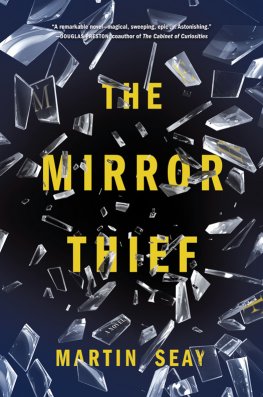

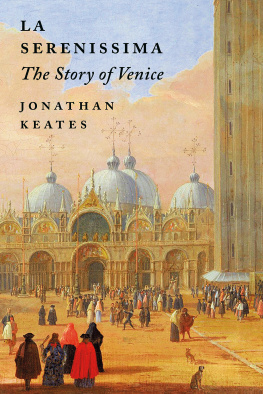
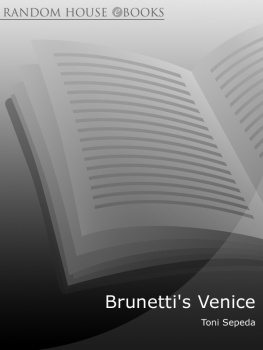
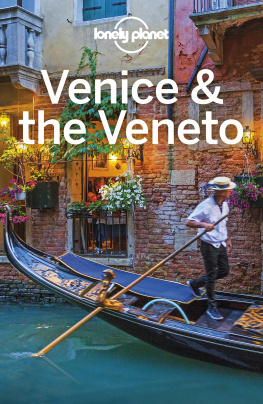
![Bosworth - Italian Venice: a history[Electronic book]](/uploads/posts/book/194557/thumbs/bosworth-italian-venice-a-history-electronic.jpg)
